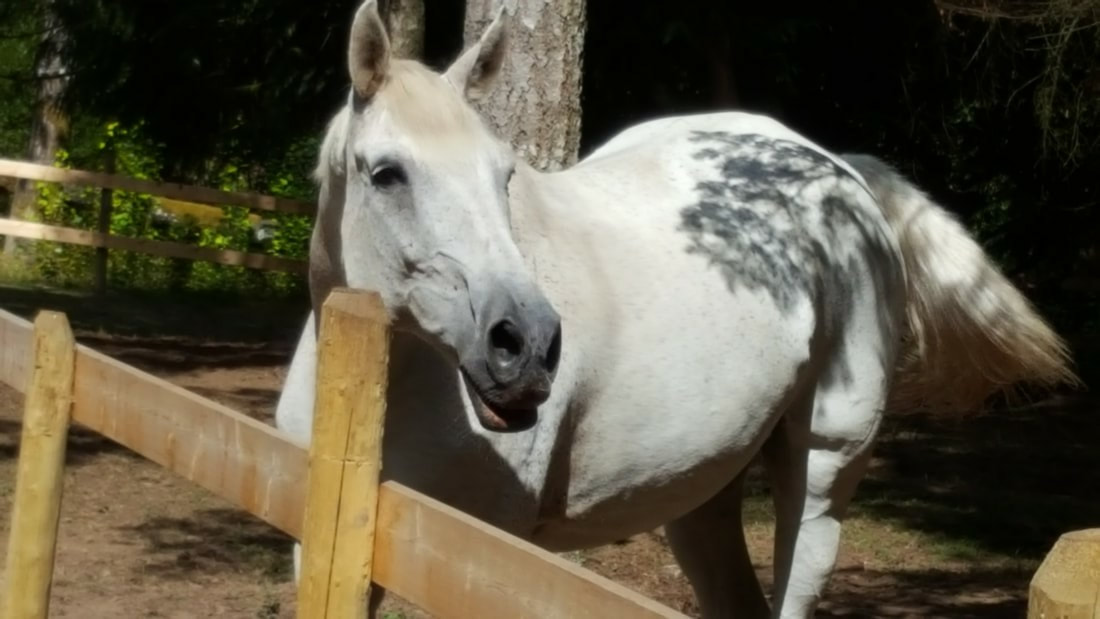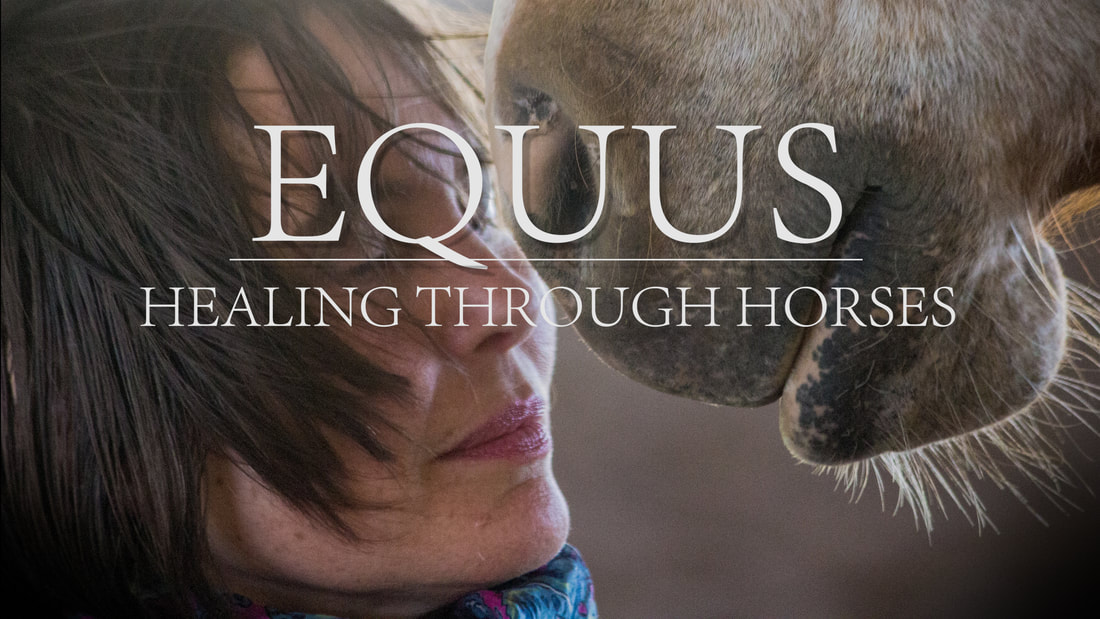IN THIS ISSUE: |
It's Already There
By Emily Pelletier Equus: Healing Power Through Horses By Anastasia Hirst Make Our Planet Great Again By Sarah Willerson Equine Assisted/ Guided/Facilitated Work : Buyer Beware By Marie Josée Hull |
IT'S ALREADY THERE
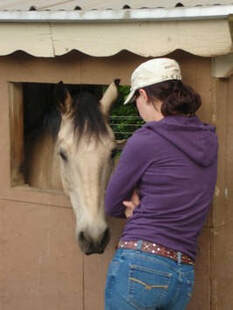 Photo by Deborah Marshall
Photo by Deborah Marshall
This afternoon I had a first session with a teenager who refuses to speak to most people. Counsellors turn her away after the first session because she won’t talk to them. I am reminded of the simple power of this work.
Many of my clients have come into my life via an email from a parent that sounds something like this: “I need support for my daughter but I don’t know if she’ll get out of the car” or “my child is in crisis. She likes horses but I don’t think she will talk to you”. I always get a kick out of telling them that if they can get said daughter onto the property I’ll have it covered!
This work doesn’t require talking. It also doesn’t require me to wear professional clothes and ask questions for an hour. It allows me to meet youth where they are at and find a way to work together. It invites the horses to break down those barriers and create a safe space for kids to try new things and be truly seen.
I’m watching this teenager. She was hesitant to get out of the car. She didn’t respond as I chatted on our way out to the horses. But as we sit and watch Tsunami get his fly mask on sideways and then paw the fence she does make eye contact. And as I’m explaining to her what this is all about she comments on how calm and still the pony mares are. And as we meet the herd she can identify feeling “a bit different but not something I can explain” as we move from horse to horse. And she’s answering my questions. She seems very anxious but she’s not admitting it. But she can feel her feet in her boots. To me she looks like a strong wind could knock her over – she is unsure, self-conscious, there’s no power in her.
Many of my clients have come into my life via an email from a parent that sounds something like this: “I need support for my daughter but I don’t know if she’ll get out of the car” or “my child is in crisis. She likes horses but I don’t think she will talk to you”. I always get a kick out of telling them that if they can get said daughter onto the property I’ll have it covered!
This work doesn’t require talking. It also doesn’t require me to wear professional clothes and ask questions for an hour. It allows me to meet youth where they are at and find a way to work together. It invites the horses to break down those barriers and create a safe space for kids to try new things and be truly seen.
I’m watching this teenager. She was hesitant to get out of the car. She didn’t respond as I chatted on our way out to the horses. But as we sit and watch Tsunami get his fly mask on sideways and then paw the fence she does make eye contact. And as I’m explaining to her what this is all about she comments on how calm and still the pony mares are. And as we meet the herd she can identify feeling “a bit different but not something I can explain” as we move from horse to horse. And she’s answering my questions. She seems very anxious but she’s not admitting it. But she can feel her feet in her boots. To me she looks like a strong wind could knock her over – she is unsure, self-conscious, there’s no power in her.
She chooses a horse. She knows why (I don’t know why). Her voice is stronger, it was a clear choice.
How many more choices will the horses help her make? How will they invite her to be present? What work will we do that starts to peel away the layers of her anxiety, her lack of confidence? When will her power start to kick in? Because it will. I can almost see it unfold already – having watched so many other young people come into their own, having been witness to such powerful work, having laughed and planned and learned with so many other wonderful kids. You can see it in there. It’s already there. Let’s go get it!
How many more choices will the horses help her make? How will they invite her to be present? What work will we do that starts to peel away the layers of her anxiety, her lack of confidence? When will her power start to kick in? Because it will. I can almost see it unfold already – having watched so many other young people come into their own, having been witness to such powerful work, having laughed and planned and learned with so many other wonderful kids. You can see it in there. It’s already there. Let’s go get it!
|
Emily Pelletier MA, EC Level One Coach Emily has been working in the field of Equine Facilitated Wellness (EFW) since 2000. She has a Master's degree in Counselling Psychology with a specialization in Equine Assisted Mental Health from Prescott College in Arizona (2009). As co-founder of the Generation Farms programs, Emily has helped create EFW programs including the HorseEmPower youth program, personal development workshops, group addictions treatment, and professional trainings. |
EQUUS: HEALING THROUGH HORSES
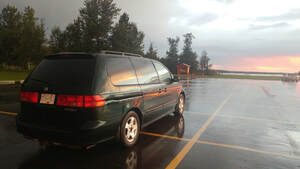
I don’t think I am the only one when I say one of the hardest parts about working in the Equine Facilitated Wellness Field (EFW) is explaining what it is to people. People typically only have reference to The Horse Whisperer or Therapeutic Riding. From individuals, I get lots of interest and support but larger systems often don't provide funding because there is a significant lack of research. This is just one of the many reasons that inspired my fiancé, John Fulton, and I to film a documentary series about people who work with horses to facilitate healing, learning and growth. Equus: Healing Through Horses is going to create more awareness and interest about EFW, inspiring more research to support the work that is already being done. We want people to no longer view EFW as an alternative or last resort to typical office based therapies, but as an effective, research based, and innovative form of healing.
|
The topics we will cover include:
|
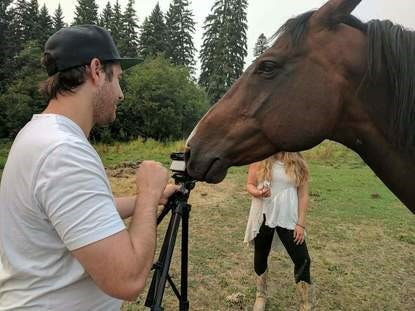
The field of Equine Facilitated Wellness is evolving and expanding into a new stage of development. When more people are aware of the good work that is being done in our field, the more likely somebody will be inspired to do research, and the more likely funding will become available. The nature of this work often means that we are working in isolation. The hope for this series is that it will create more of a community within the field and encouraging dialogue between different modalities so we can learn and gently challenge one another.
This is the first documentary series of it’s kind and we could use your support! Please follow us on Facebook and Instagram and check out our Indigogo Campaign where we are trying to raise the funds needed for this project. We are packing up our house and travelling in our van, camping and staying with generous hosts along the way. At this time, we are doing all the filming, editing, and distribution ourselves.
https://www.indiegogo.com/projects/equus-healing-through-horses/x/16821780#/
Thank you to all the support we have already received from the EFW community!! Please let us know if you would like to be a part of this project in any way and if you have any suggestions for us.
This is the first documentary series of it’s kind and we could use your support! Please follow us on Facebook and Instagram and check out our Indigogo Campaign where we are trying to raise the funds needed for this project. We are packing up our house and travelling in our van, camping and staying with generous hosts along the way. At this time, we are doing all the filming, editing, and distribution ourselves.
https://www.indiegogo.com/projects/equus-healing-through-horses/x/16821780#/
Thank you to all the support we have already received from the EFW community!! Please let us know if you would like to be a part of this project in any way and if you have any suggestions for us.
EQUINE ASSISTED/FACILITATED/GUIDED WORK
BUYER BEWARE
|
There is no magic about Equine Facilitated Wellness (EFW) but there is the possibility of true connection. Over the years, the horse has not been led astray from his inner wisdom and intuition. To survive for thousands of years the horse has relied upon his ancient ability to be in his body and feel situations. As opposed to humans, whose ability to access their ancient wisdom has been clouded by many things. This may be why we are observing so many mental and physical health issues today. This is also why the field of equine assisted/facilitated/guided work is emerging. We are looking for that connection. Many programs are popping up as people are enthusiastic and get programs running quickly after a few days of training in the practice. In these days of immediate gratification, we want the quick training. I find it worrisome when I hear stories of participants feeling shamed or scared in sessions, or stories of horses being controlled or scared in sessions. There are many aspects of Equine Facilitated Wellness work that comes into play when either choosing a program to engage in as a client or a program to train in as a professional. This is quite important because not all programs are created equal.
To help you make an informed decision as to what program you wish to receive services from or to train with, I will tell you a bit about lack of connection, the nature of horses, what to look for in a facilitator, the nature of the horsemanship used in programs, important values to consider, the settings of EFW sessions and some safety considerations. Lack of Connection
Today’s pace of life is difficult to keep up with. We are losing our connections to earth, to fellow humans and to ourselves as we are more and more indoors and plugged into our devices. Humans are social beings much like horses, and although we have so much technology to stay connected, we find ourselves more and more isolated, experiencing anxiety, depression, shame, a sense of inadequacy, etc. The way through this for us is connection … connection to nature, connection to our environment and to other humans and connection to ourselves. Furthermore, I will add that it is a compassionate connection that can lead us to the way.
I truly believe the horse can help us rediscover the inner wisdom that will lead us to connection. In EFW work, the horse is a partner who does not judge. If we listen, he can lead us back to this inner power we all have. The horse does not interact with us because we have money, nice clothes, a great car … he chooses to spend time with us because he can feel the comfort of our true nature. He can see past the façades we have created to survive our world. He will not give you the answer, but he guides you back to your heart, your true self, your inner wisdom. This is what our rational mind’s adaptive response has alienated us from, to survive the overwhelming expectations of our new world. And this to me is the essence of EFW work. The Nature of Horses
The horse reacts accordingly to what we are holding within us at each moment. As an herbivore, he has never had to worry much about the food source in the wild, he would roam around eating, finding water, playing, and at times flying to safety when a predator approached. The horse lives in the present moment. He has an itch; he scratches, he is hungry; he eats, he is hot; he seeks shade … his actions are motivated by his present moment needs for safety, food, comfort and play. If he reacts negatively, it’s because one of those needs is in jeopardy. And not because he made a negative judgment regarding the personal worth of whomever he is interacting with, or because he is manipulating a situation. These are human behaviours.
In many ways, when his basic needs are met, his need to seek comfort is what helps us learn about ourselves when interacting with him. He will experience some discomfort in the presence of incongruence. He will react to us in different ways if we are acting (non-verbal) in a way that is different from, the felt sense of our internal experience. He needs us to recognize what we are truly feeling and sensing and learn to be present with that. This ability is at the root of every healing. As humans, we tend to avoid often. It is a protective mechanism. However, a lack of awareness and overuse of such mechanisms can lead us to lose our true selves What to Look for in a Facilitator?
With the skillful help of a qualified mental health, learning or equine professional, you can achieve personal growth and development working with the horse. The extent of this growth and development is determined by the participant’s personal goals achieved through a respectful relationship with the horse. Note that the respectful relationship with the horse is the secret ingredient. We all have different journeys and rhythms for change and growth. Somehow, the horse has this beautiful instinctive ability to know how much to do, if we listen. It is the job of the human facilitator to help the participant pause and listen in his interactions with the horse. Any intervention that is goal-oriented in contrast to relationship-based can neglect the needs of the horse. This can be effective in some cases, but often it leaves an aftertaste indicating that something is just not right. Many therapy horses in such programs become weary of working, and this is not acceptable. It is also not acceptable in EFW to model such relationship patterns. Only in situations potential of physical harm should we place the goal ahead of the relationship.
Knowing this, choose your practitioner wisely. What is their scope of practice? What is their education, their experience, their knowledge of horses, mental health and human growth? Whom do they work with, how do they work? Alone or with another professional? What is their philosophy behind their EFW work? How do they value safety? Emotional and physical safety? Do they have proper insurance? I invite anyone who wants to find a therapist to research and to interview their therapist. This is no different because there are horses involved. The Nature of the Horsemanship Used in Programs
The type of horsemanship practised in the EFW program is very important because the treatment of the horse must model respect and care for their physical and emotional well-being. Traditional horsemanship methods and even natural horsemanship methods which put the emphasis on performance versus the relationship with the horse are not recommended for an EFW setting. Clients who witness distressed horses when being ridden with all kinds of restrictive equipment or even being yelled at or hit for expressing a need (seen as misbehaving by some horse people) could trigger clients. We can also witness super obedient horses that are disconnected and only obedient because they were conditioned to do so with too much pressure. This type of horsemanship is modelling abuse of power.
|
Horses which are kept in stalls and turned out for very short periods by themselves and do not have the opportunity to be in a herd will struggle to act naturally. They may be stressed and lonely, and this can make effective interactions and true connection with the horse very challenging. If the horse’s basic needs are not met, he is not able to be comfortable, and he will not engage with humans in the same way. Horses forced to behave may look very docile and cooperative on the surface, but often they turn themselves off (dissociate) in the presence of humans who do not listen to their needs. Other horses living under similar circumstances may become aggressive if they do not want to interact with humans but are not given the chance to move away.
Important Values to Consider
To do this work, it is an art, and it takes time, skill, knowledge and commitment. Practitioners hold quite a responsibility to create a safe space for participants and for horses. We cannot create space for one and not the other. When doing EFW work, never can we overpower a horse for the goals of the participants. This may be observed in horsemanship but not in EFW horsemanship. The work is not to include participants into the horse world, because the horse world/industry is often about restraining, controlling disguised as safety or caring. Not to allow a being to have an opinion is not a true relationship. This does not mean that the horse runs the show (although horse’s natural tendencies look more like, co-operation and negotiation. We observe in horses more competition and aggression when they are kept in artificial settings by humans.) It means that boundaries are being negotiated in the relationship. Assertiveness is being modelled in a way that builds true connections. In real life, these skills will be more valuable because healthy relationships are not created by overpowering or dominating people or situations. Therefore, this is not how you want your EFW facilitator to work with their horses in EFW.
The human facilitator ensures that the needs, abilities, strengths, challenges and preferences of the horse are being respected. If a horse is not wanting to do something, they support him either by stopping the exercise, breaking it down into smaller steps or modifying it. The horse himself often has great ideas about what activities can take place if we can listen to him. The facilitator must be able to listen to the horse, accept the answer and be flexible enough to reroute. EFW Session Setting
EFW work requires a calm and peaceful setting. It is essential when working with a vulnerable population that we provide a safe environment. A boarding facility may present some challenges to EFW work. Having many people coming and going will most likely interfere with the emotional safety of participants or even physical safety. The intense personal issues that are dealt with in sessions need to be worked on in private. Confidentiality is a must to ensure emotional safety of clients.
Some Safety Considerations
For the emotional and physical safety of the horse and the client, interactions are done with minimal equipment and always allow the horse to refuse or walk way. His expression of his immediate needs are invaluable in EFW. We are seeking understanding and co-operation in all that we do. This may seem very obvious but over the years studying many types of approaches, I have discovered that it is not the case. Horses are still viewed as beasts of burden in many programs still today. We place them in unnecessary stressful situations for the needs of the human. Not recognizing the horse as a sentient being, we neglect the true lessons they can teach us, and we are placing valuing only on the needs of the human. This is what causes so many issues for humans in the first place, why we are repeating this dysfunctional way of interacting to heal ourselves. I do not believe we can achieve any healing by arming another being.
Interactions or activities should be done slowly with a present moment focus by helping the participant stay in his body and helping him and the horse stay within their own window of tolerance. We focus upon the process versus the goal as this allows the relationship to come first. We stay attuned to signs of arousal in the horse and in the client. The human facilitator can slow the process and ask questions to help the client get back in the body and lower their level of activation, or to help the horse to lower his level of activation. This attunement training happening in the facilitated interactions between horses and participants becomes a stepping stone to future healthy relationships and connections. This paves the route to a fulfilled life. When that facilitator does not have the abilities, the knowledge and the presence to listen to both the horse and the participant, the latter will not be emotionally and physically safe. Conclusion
As the EFW practice has grown, it has been marketed in different ways, and in an effort to bring the practice to as many people as possible, we may have left the horse behind. His sentience is what makes this practice so powerful. I hope you take the time to pause, reflect, research and ask questions before choosing a program to work with. This is certainly why I have chosen to affiliate with EFW-Can. I have certified and become a mentor through this association which has allowed me to work in a way that fits me and my herd of five horses. EFW-Can structures and guides my practice and has helped me develop high standards. I abide by the EFW-Can code of ethics, which values respect, professional competence, integrity and honesty as well as responsibility in the practice of EFW. I chose this association because they respect the rights and dignity of all individuals—both human and equine. As such they view equines as sentient beings and advocate for their welfare in the field of EFW.
Any professional from various approaches that shares the philosophies and ethics of EFW-Can may join the association and get certified. Clients can obtain information and access a list of certified professionals on the EFW-Can Website. I feel quite confident and proud to refer clients to any EFW-Can Certified Professionals because they have obtained EFW-Can’s stamp of approval. I know they have gone through a rigorous certification process that takes a minimum of two years. As well, to maintain their certification-Can professionals are required to provide the association proof of their insurance, professional affiliation in good standing and continuing education. You can consult the list of trainers, mentors and certified professionals by clicking here. |
|
Marie Josée Hull is a Registered Social Worker tri-certified as EFW-Can Equine Professional, EFW-Can Learning Professional ad EFW-Can Mental Health Professional. She is also an EFW-Can Mentor. She practises in Braeside, Ontario with her herd of 5 horses.
|

